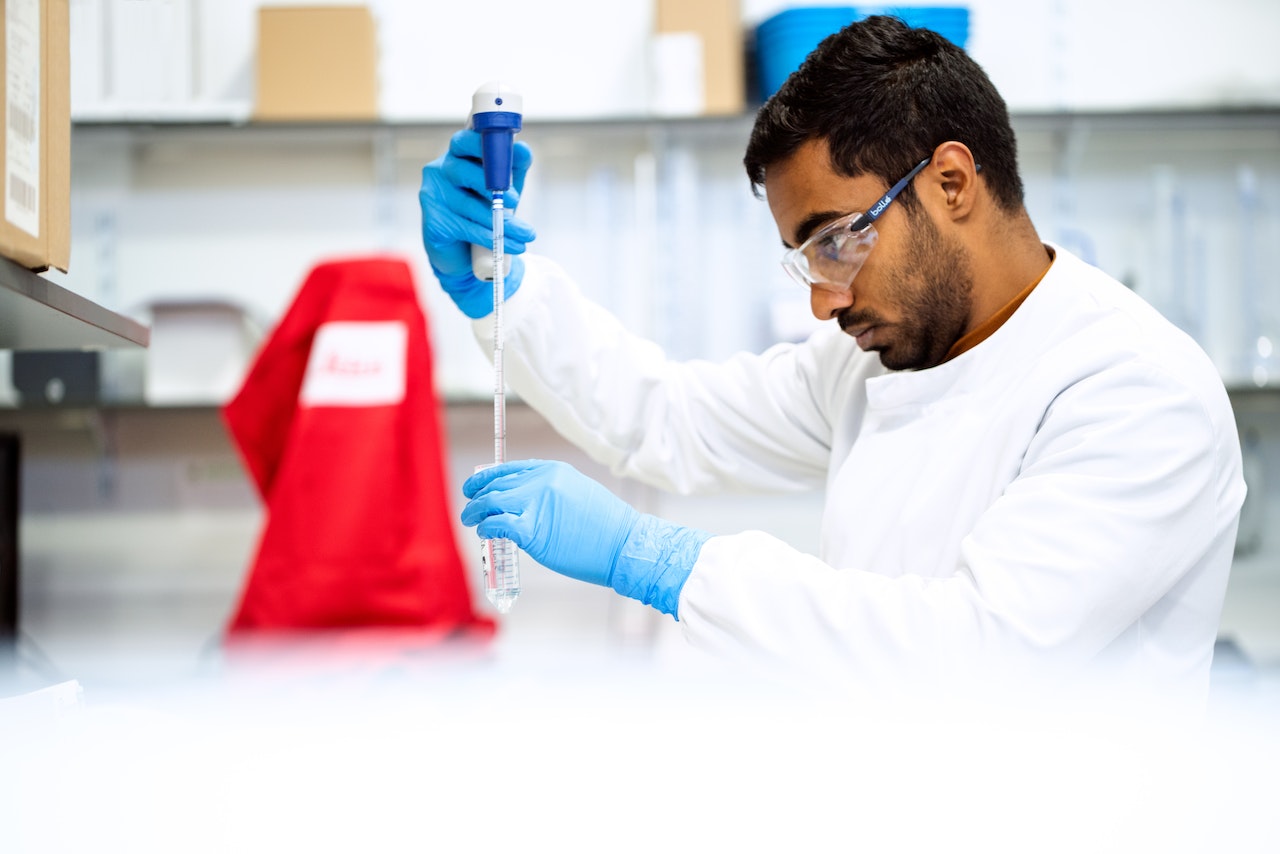B.I.S. Interdisciplinary Studies Program Map

Materials Science Pathway
As Interdisciplinary Studies majors, students in the materials science pathway will study at the intersection of physics and chemistry, establishing a strong foundation for careers in research and development, fabrication, or manufacturing.
Stats
60
Core Credit Hours
36
Major Credit Hours
24
Elective Credit Hours
- Plan Your Degree
- Crush Your Course
- Find Your Place
- Broaden Your Perspectives
- Connect Off-Campus
- Take Care of Yourself
- Pave Your Path
Plan Your Degree
Disclaimer: This program map is intended ONLY as a guide for students to plan their course of study. It does NOT replace any information in the Undergraduate Catalog, which is the official guide for completing degree requirements.
| Course Name | Credit Hours |
|---|---|
|
C1: ENGL 1101
English Composition I |
3 |
|
M: MATH 1113
Precalculus |
4 |
|
T1: CHEM 1211 + Lab
Principles of Chemistry I |
4 |
|
I2: XIDS 2001 OR 2002
First-Year Seminar |
1 |
|
S1: HIST 1111 OR 1112
World History |
3 |
Milestones:
- Complete ENGL 1101 with a C or better
- Complete MATH 1113
| Course Name | Credit Hours |
|---|---|
|
C2: ENGL 1102
English Composition II |
3 |
|
T3: MATH 1634
Calculus I |
4 |
|
T2: CHEM 1212 + Lab
Principles of Chemistry II |
4 |
|
P1: HIST 2111 OR 2112
US History |
3 |
|
I2: Institutional Course |
1 |
Milestones:
- Complete ENGL 1102 with a C or better
- Complete MATH 1634
- Complete CHEM 1212/1212L
15 Fall Credit Hours + 15 Spring Credit Hours = 30 Credit Hours
| Course Name | Credit Hours |
|---|---|
|
F: PHYS 1111 + Lab
Introductory Physics I |
4 |
|
F: MATH 1401 OR 2644
Elementary Statistics or Calculus II |
3/4 |
|
I1: COMM 1110
Oral Communications |
3 |
|
F: CHEM 2411 OR 2455 + Lab
Organic Chemistry I or Principles of Organic Chemistry |
4 |
Milestone:
- Complete CHEM 2411/2411L or 2455/2455L
| Course Name | Credit Hours |
|---|---|
|
F: XIDS 2000
Intro Interdisciplinary Studies |
3 |
|
F: PHYS 1112 + Lab
Introductory Physics II |
4 |
|
P2: POLS 1101
American Government |
3 |
|
Elective
(Core Area F, if needed) |
3 |
|
A: Humanities |
3 |
Milestones:
- Complete XIDS 2000 with a C or better
- Complete PHYS 1112/1112L
- Complete BIS Degree Plan and submit to Registrar
13/14 Fall Credit Hours + 16 Spring Credit Hours = 29/30 Credit Hours
| Course Name | Credit Hours |
|---|---|
|
PHYS 4985
Applied Mechanics |
3 |
|
PHYS 4985
Modern Physics for Engineers |
3 |
|
Elective: GEOL 1121 + Lab
(Recommended) Intro Geosciences I |
4 |
|
A: Humanities |
3 |
|
S2: Social Science |
3 |
| Course Name | Credit Hours |
|---|---|
|
XIDS 3000
Interdisciplinary Methods |
3 |
|
CHEM 3201
Materials Chemistry or Polymer Chemistry |
3 |
|
Elective |
3 |
|
Elective |
3 |
|
Elective |
3 |
Milestone:
- Complete XIDS 3000 with C or better & finish capstone proposal/plan
16 Fall Credit Hours + 15 Spring credit hours = 31 Credit Hours
| Course Name | Credit Hours |
|---|---|
|
PHYS 4985
Fundamentals of Materials |
3 |
|
CHEM 4985
Experimental Tech. in Materials Chemistry |
3 |
|
PHYS 4683 OR CHEM 4083
Internship or Faculty Directed Research |
1 |
|
Elective: PHYS 3511
(Recommended) Experimental Physics I |
1 |
|
GEOL 3014
Mineralogy and Crystallography |
4 |
|
Elective: PHYS 3013
(Recommended) Basic Electronics |
3 |
| Course Name | Credit Hours |
|---|---|
|
XIDS 4000
Interdisciplinary capstone |
3 |
|
CHEM 3201
Materials Chemistry or Polymer Chemistry |
3 |
|
PHYS 4683 OR CHEM 4083
Internship or Faculty Directed Research |
2 |
|
Elective: PHYS 3521
(Recommended) Experimental Physics II |
1 |
|
Elective |
3 |
|
Elective |
3 |
Milestones:
- Complete XIDS 4000 with a C or better along with capstone project
- Reach 39 credit hours at 3000/4000 level and 120 credit hours total
15 Fall Credit Hours + 15 Spring Credit Hours = 30 Credit Hours
Crush Your Course
First Year:
- Make sure to take XIDS 2000: Introduction to Interdisciplinary Studies to start your intellectual, boundary-crossing journey!
- Discover your interests in your core classes. These can help you establish your disciplines.
Middle Years:
- Work with your IDS professors in XIDS 3000 to establish your degree plan, including identifying your complex problem and exploring how and what disciplines can help inform your inquiry.
Last Year:
- This is the time for your XIDS capstone! Make sure you have 9 hours of 3000-4000-level coursework for each of your two disciplines!
Find Your Place
First Year:
- Check out UWG’s Academic Transition Programs and take a cornerstone course (XIDS 2002).
- Explore events, clubs, and organizations available to you! Let the program and/or disciplines you’ve identified guide your search.
- Visit the Office of Undergraduate Research.
Middle Years:
- Attend UWG Scholars’ Day.
- Check out what university associations and community organizations relate to your disciplines.
Last Year:
- Hone your leadership skills by mentoring new IDS majors!
- Consider running for an officer position in a student organization.
Broaden Your Perspectives
First Year:
- Check out the education abroad office.
Middle Years:
- Consider a study abroad program. Check out students’ stories of their experiences.
Last Year:
- Assess your cultural competency.
- Consider working abroad and research visa regulations.
- Explore practices of creating more inclusive careers.
Connect Off-Campus
First Year:
- Visit Wolves Vote to learn about the voting process and registration.
- Consider volunteering for a campaign or organization in your community.
Middle Years:
- Complete an internship in your field.
- Consider a summer or part-time job.
- Ask your department about networking opportunities with alumni.
Last Year:
- Ask for advice from professionals in your field of interest.
- Explore career shadowing opportunities.
Take Care of Yourself
First Year:
- Visit Health Services.
- Get fit! Visit URec to see all your options.
- Visit the Center for Economic Education and Financial Literacy.
Middle Years:
- Take a fitness class, climb the rock wall, or join an intramural team.
- Consider whether counseling is right for you: take a mental health screening.
Last Year:
- Explore a farmer’s market for fresh produce.
- Develop a post-graduation exercise plan.
- Explore your loan repayment options and complete your exit counseling.
Pave Your Path
First Year:
- Complete a self-assessment to see what careers and majors are right for you.
- Visit Career Services.
- Create your profile on Handshake.
- Consider applying for an on-campus job.
Middle Years:
- Draft your resume and attend a resume blitz.
- Learn about how to network on social media and update your Handshake profile.
- Draft your personal statement.
- Visit the graduate school to find out about graduate programs and admission requirements.
Last Year:
- Request references from professors and supervisors.
- Draft your resume cover letter and personal statement and revise it with career services.
- Attend business fairs and career fairs at UWG and across the state.
- Attend an interview workshop.
- Apply for graduate programs.
Careers

Career Opportunities
This degree may help you get work as the following:
- Analytical Chemist
- Biomedical Engineer
- CAD Technician
- Design Engineer
- Geotechnical Engineer
- Materials Engineer
- Metallurgist
- Process Development Scientist
- Research Scientist
- Technical Sales Engineer
Requirements

Degree Requirements
IDS MAJORS
All IDS majors complete an XIDS course sequence through which they learn interdisciplinary concepts and method, culminating with a capstone project that reflects their intellectual and career interests:
- XIDS 2000 - Introduction to Interdisciplinary Studies
- XIDS 3000 - Interdisciplinary Methods
- XIDS 4000 - Interdisciplinary Capstone
Pathway requirements
Pathway Requirements
Foundation Courses
Physics foundation
- PHYS 1111/1111L - Introductory Physics I + Lab
- PHYS 1112/1112L - Introductory Physics II + Lab
Chemistry foundation
- CHEM 1211/1211L - Principles of Chemistry I + Lab
- CHEM 1212/121L - Principles of Chemistry II + Lab
- CHEM 2411/2411L - Organic Chemistry I + Lab or CHEM 2455/2455L - Principles of Organic Chemistry + Lab
Upper-Level Courses
Three courses in Physics
- PHYS 4985 - Applied Mechanics
- PHYS 4985 - Modern Physics for Engineers
- PHYS 4985 - Fundamentals of Materials
Three courses in Chemistry
- Two of the following:
- CHEM 3201 - Survey of Materials Chemistry
- CHEM 3201 - Polymer Chemistry
- CHEM 3201 - Green Chemistry
- CHEM 4985 - Experimental Techniques in Materials Chemistry
HeadingSub-Heading
Have any questions about your major?
Don't forget to check out Wolf Watch to explore degree requirements!
